Community garden faces hitch in its water supply
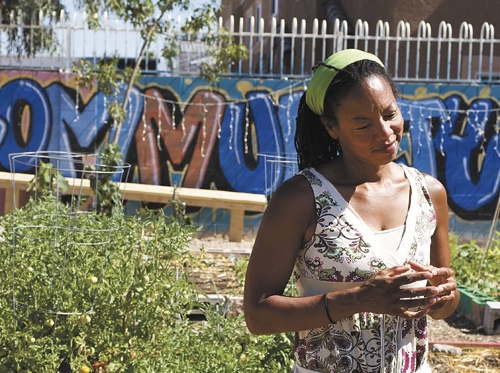
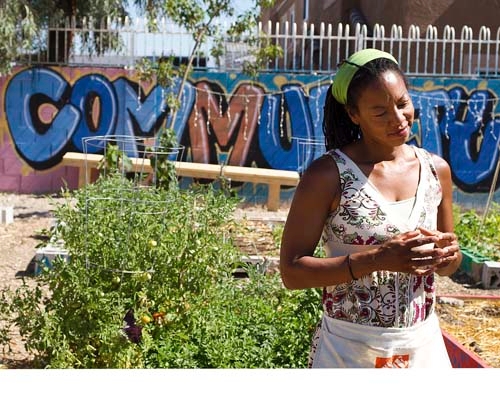
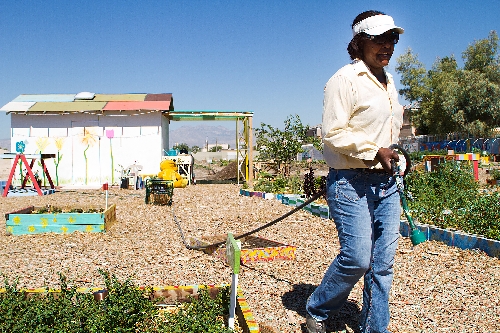
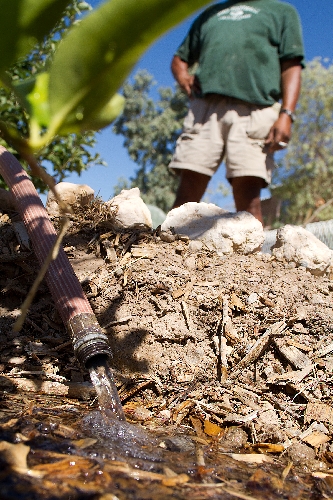
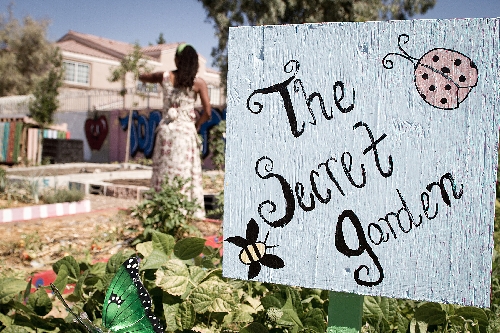
When the Tonopah Community Garden had its first volunteer day in the spring of 2010, 80 people showed up, filling the garden’s founder, Rosalind Brooks, with hope that her project would hit the ground running.
The turnout, unfortunately, was inflated by Disney’s "Give a Day, Get a Day" volunteer promotion. The next weekend, one volunteer showed up.
And that’s the way things have gone ever since for the 5-acre experiment in community gardening on Tonopah Drive near Bonanza Road, where it seems everything is two steps forward, one step back.
The garden, however, now faces its toughest hurdle yet — a hitch in its water supply.
"The water was actually donated for the first year," Brooks said. "I would’ve shut down long ago if it weren’t for that. I’m going to have to start paying in July."
At $8,000 a year, it’s a bill she fears the shoestring nonprofit won’t be able to pay for more than a couple of months.
One avenue is finding the right sponsor or institution to partner with, which is an ongoing effort.
Brooks said she’s interested in discussing another possibility: establishing a lower water rate for these types of projects to make community gardens, which are considered an important part of urban revitalizations, easier to start and maintain.
Water, of course, is a contentious issue in arid Southern Nevada, and policymakers probably would have a hard time swallowing such an arrangement.
"There is not a discussion currently about that," said Clark County Commissioner Steve Sisolak, who sits on the board of directors for the Southern Nevada Water Authority.
"I don’t know how you justify that: You’ll have people say, ‘Well, my use is drinking,’ " he said. "Once you start picking and choosing, you’re going to alienate a lot of people."
That’s exactly the opposite of what community gardening is supposed to do, said Angela O’Callaghan of the University of Nevada’s Cooperative Extension.
"Community gardening brings people together in a way that almost nothing else does," she said. "It’s a visual and horticultural focal point.
"Especially if it’s an area that’s kind of desolate and has been allowed to go low maintenance, you put in some plants that can produce food and it’s a bonus."
Dozens of such gardens are thriving in the valley already, she said. Most of them are affiliated with senior centers or schools. The Three Square Food Bank has one, and another is being developed at Floyd Lamb Park at Tule Springs.
One of the keys to having a successful garden is working as part of a group because getting started is a huge task.
"The best way is when you have a group of people — it doesn’t have to be a big group — who think it’s a good idea," O’Callaghan said. "Going it alone just doesn’t do it."
Las Vegas City Councilman Ricki Barlow, whose ward includes the garden, said it has quickly become a community resource.
"There have been a number of community events that have taken place at the Tonopah Community Garden," he said. "All of the elementary schools in the area take their kids out and teach them about horticulture, being green, eating healthy."
He said he’s not sure what can be done to ensure the garden has the resources it needs but said his office will work with Brooks.
"This is a garden that the entire community supports, and it’s a garden that is most definitely needed," he said.
Brooks, a former teacher, said she knew almost nothing about gardening when she started, making the project infinitely harder.
"It was a lot of trial and error," she said. "A lot of stuff died.
"I really had to do everything myself. I learned so much."
For now, there is greenery in what was once a vacant, debris-covered lot.
People are raising tomatoes, melons, peppers and many other fruits and vegetables — even grapes — and there are chickens laying eggs and goats providing milk.
Of the 30 cultivated plots, 14 are maintained by people who have purchased the right to grow there, which is for now the garden’s main source of income.
The water challenge won’t make Brooks give up, she said: "That’s not even enough to make me stop the project."
Contact reporter Alan Choate at achoate@reviewjournal.com or 702-229-6435.
TONOPAH COMMUNITY GARDENtonopahgarden.word press.com












